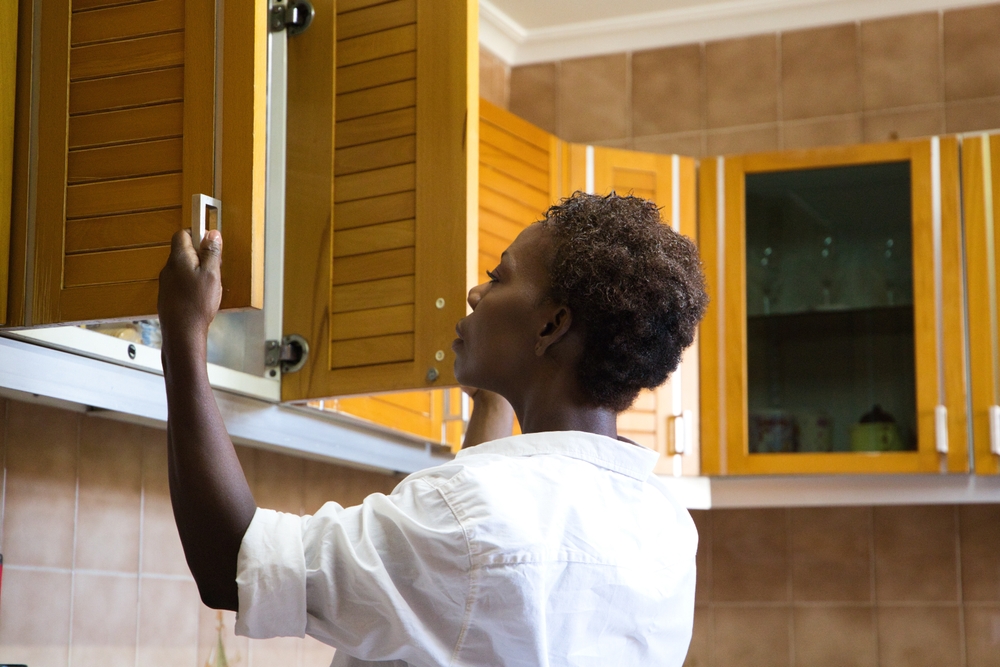The kitchen is often the most active room in any home. It is a place for cooking, gathering, and sometimes even working. Because it serves so many purposes, it is common to use kitchen cabinets to store a variety of items that might not belong there. While some items are perfectly fine to keep in cabinets, others can pose risks to your health, safety, and the quality of your food. Understanding what should not be stored in kitchen cabinets can help you avoid contamination, pest problems, or damage to everyday essentials. Here are six items you should never keep in your kitchen cabinets and why.
Medications Do Not Belong in the Kitchen

It might seem practical to store daily medications in the kitchen, especially if you take them with meals. However, the kitchen is not a safe environment for medicine. The heat and humidity produced by cooking and dishwashing can reduce the effectiveness of medications by altering their chemical stability. Even storing them in closed cabinets does not protect them from temperature changes. Over time, this can make them less effective or potentially harmful. Medications should be stored in a cool, dry place away from sunlight and moisture. A high shelf in a bedroom closet or a locked cabinet in the bathroom is often better. Always follow the storage instructions on the packaging or from your pharmacist, especially if refrigeration is required.
Avoid Keeping Cleaning Products Near Food
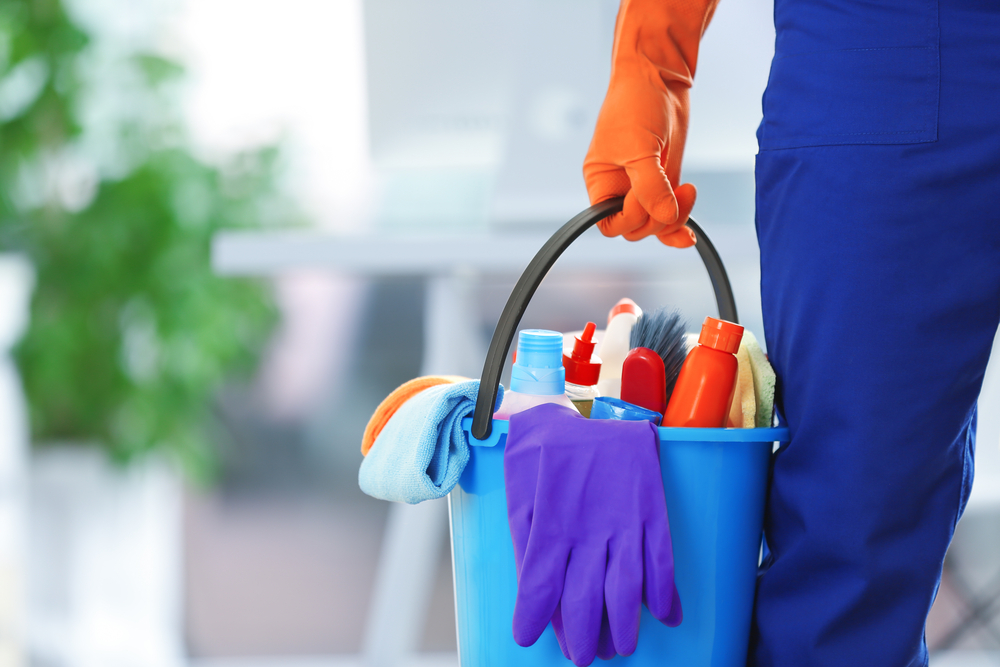
Storing cleaning products like dish soap, disinfectants, and oven sprays in kitchen cabinets is a common but risky habit. Cabinets under the sink are especially popular for storing these items, but they are also prone to leaks and chemical fumes. The risk is even greater when cleaning supplies are stored near food or cooking equipment. Accidental contamination or spillage could lead to dangerous exposure. Instead, consider storing all household cleaners in a separate utility room or a secured cabinet that is far from food. If you must use under-the-sink space, use airtight containers and clearly label them. Keeping cleaning supplies away from food items is an important step toward a safer and more hygienic kitchen.
Keep Fresh Produce Out of Cabinets
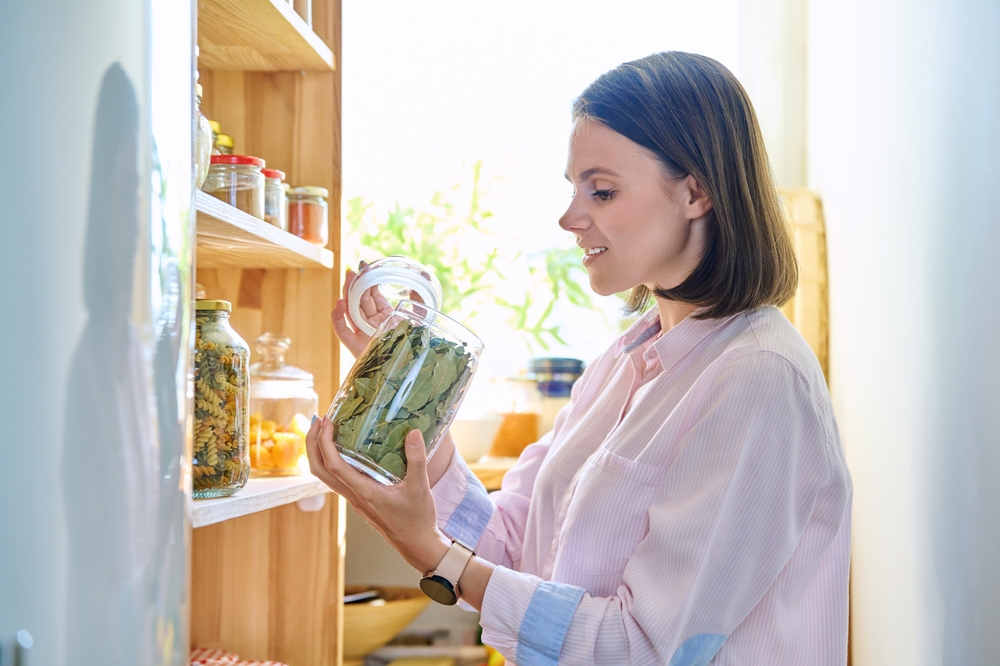
It may seem harmless to store onions, garlic, or potatoes in your kitchen cabinets, but these types of produce need airflow to stay fresh. Enclosed, dark cabinets can trap moisture, which encourages mold, sprouting, and spoilage. Potatoes in particular emit gases that cause other produce to deteriorate faster, especially if stored together with onions. These items should be kept in ventilated baskets or mesh bags in a cool and dry part of the home, such as a pantry or open shelf. Also, remember not to store potatoes and onions next to each other. By giving produce the right environment, you extend its shelf life and avoid unnecessary waste.
Read More: Fast Solutions for Neutralizing Urine Odors on Bathroom and Kitchen Floors
Never Store Flammable Items Near Heat
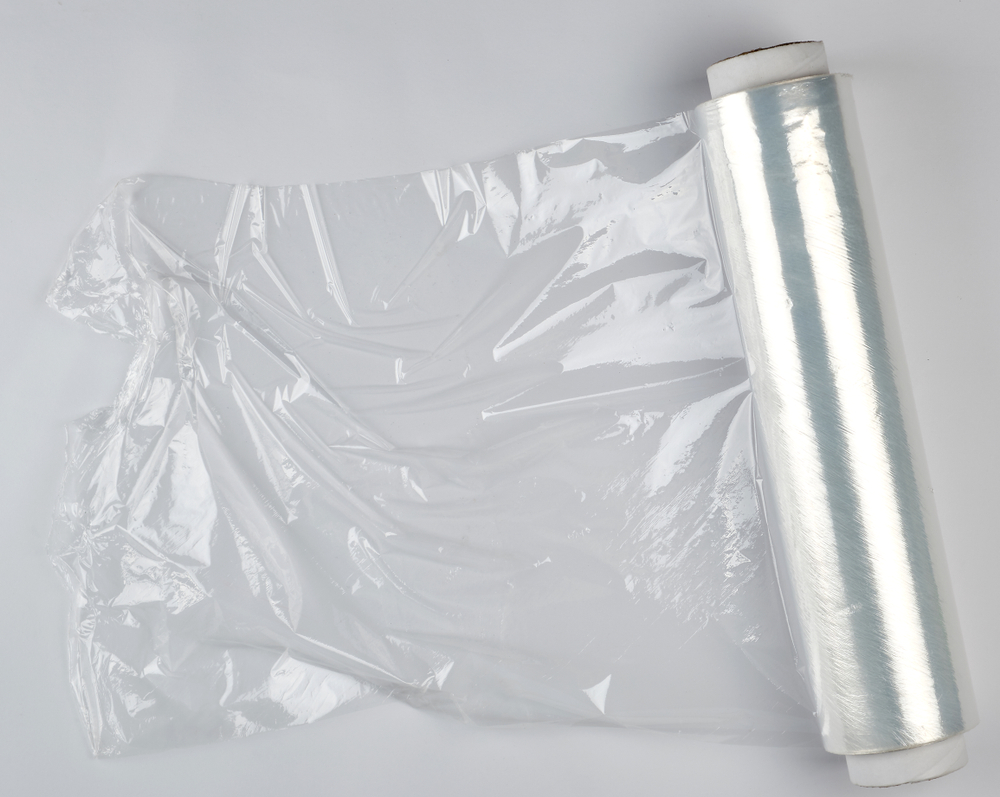
People often place items like paper towels, parchment paper, and plastic wraps in cabinets located close to the stove for convenience. While this might save time during meal prep, it also increases the risk of fire. Storing flammable items near heat sources like ovens or stovetops can lead to dangerous accidents, especially if cabinets are accidentally left open or if a fire breaks out. A better strategy is to keep these supplies in a drawer or cabinet far from the heat. Choose a storage spot that is easy to reach but not close to cooking appliances. Prioritizing safety in your kitchen setup can help prevent disasters before they happen.
Bulk Staples Should Not Stay in Original Packaging
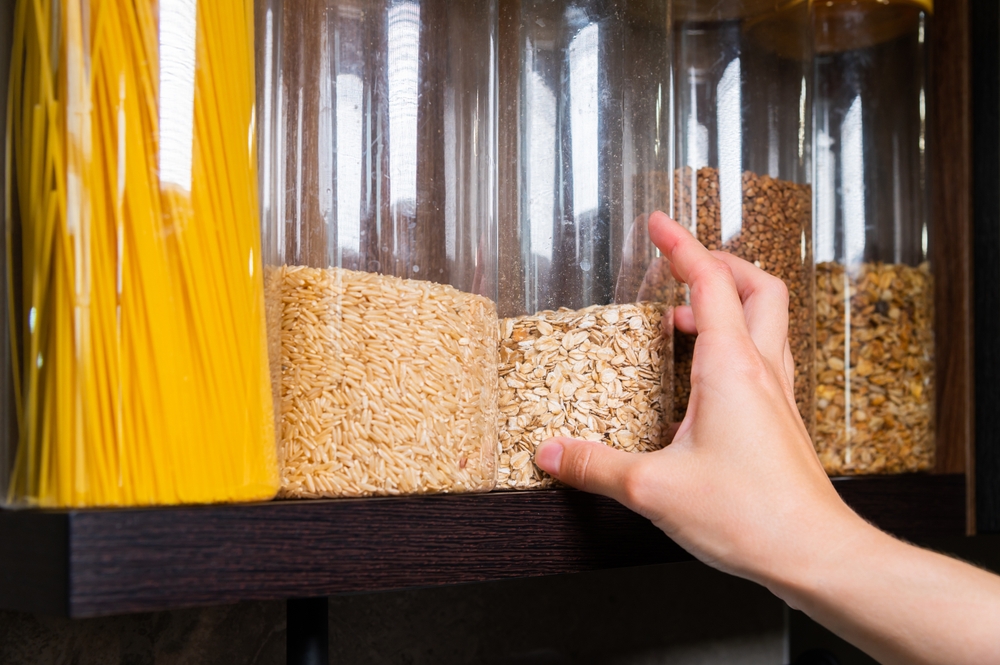
Storing large quantities of flour, sugar, rice, or cereal in their original paper or plastic packaging might seem fine at first, but these containers are not airtight. This makes them vulnerable to moisture and pests like ants or pantry moths. Once inside, pests can contaminate everything, leading to food loss and cleanup headaches. To protect your food, invest in airtight storage containers made from glass or durable plastic. These containers not only keep your staples fresh longer but also make your cabinets neater and easier to manage. Always label containers with the product name and expiration date so you can track your inventory more efficiently.
Electronics Are Not Cabinet-Friendly
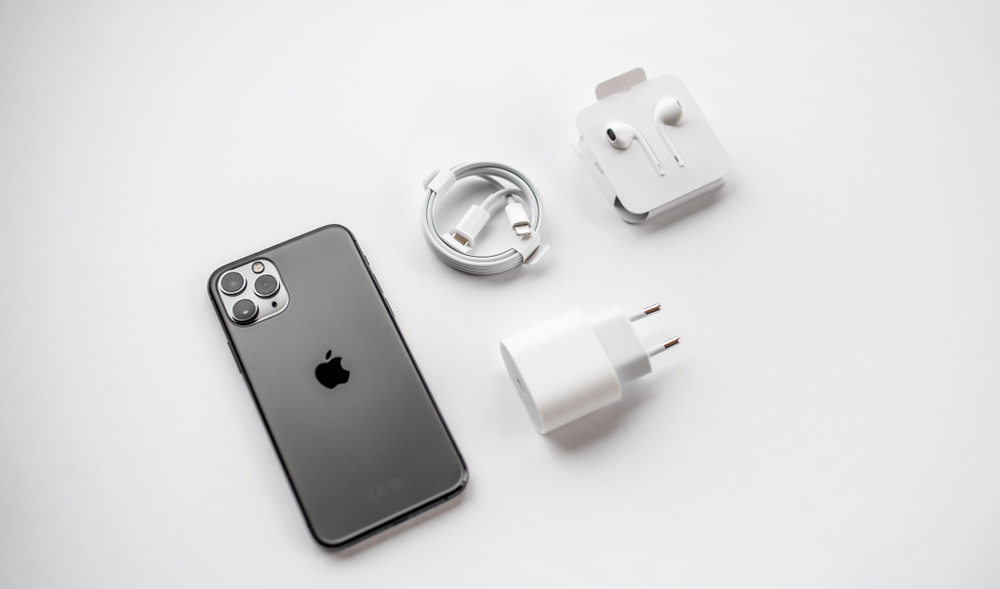
The kitchen may be a convenient place to use or store devices like tablets, phones, speakers, or portable chargers. However, kitchen cabinets are not ideal storage locations for electronics. The heat and humidity in kitchens can damage batteries and internal components. Additionally, placing these items near sinks, stovetops, or dishwashers increases the risk of electrical damage or short circuits. If you need devices nearby for recipes or entertainment, use a counter stand or wall mount with a protective case. When not in use, store these electronics in a cool and dry location outside the kitchen. Keeping technology away from cooking zones reduces the risk of damage and helps devices last longer.
Take Time to Audit Cabinet Contents
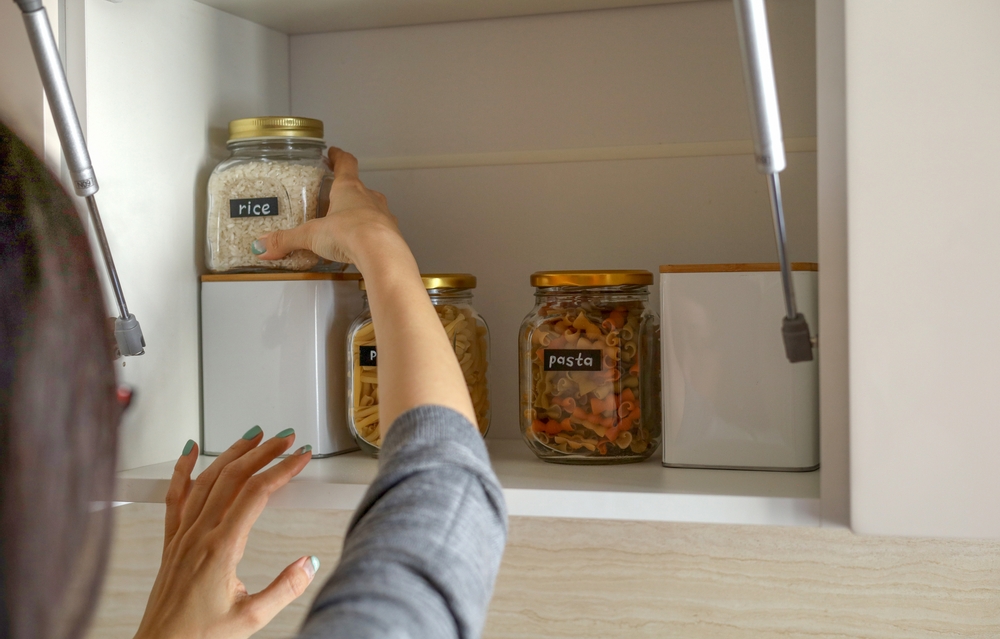
It is easy to fall into the habit of storing miscellaneous items in kitchen cabinets just to get them out of sight. However, a yearly cabinet audit is a good practice to maintain a safer and more efficient kitchen. Review what is in each cabinet, discard expired or spoiled items, and relocate anything that does not belong. This process helps prevent clutter and ensures that everything in your kitchen is where it should be. Make a list of safe kitchen cabinet items such as canned goods, spices, plates, and cookware. Then identify what should be stored elsewhere. This routine will not only free up space but also reduce the risk of accidents and contamination.
A Cleaner, Safer Kitchen Starts With Smart Storage
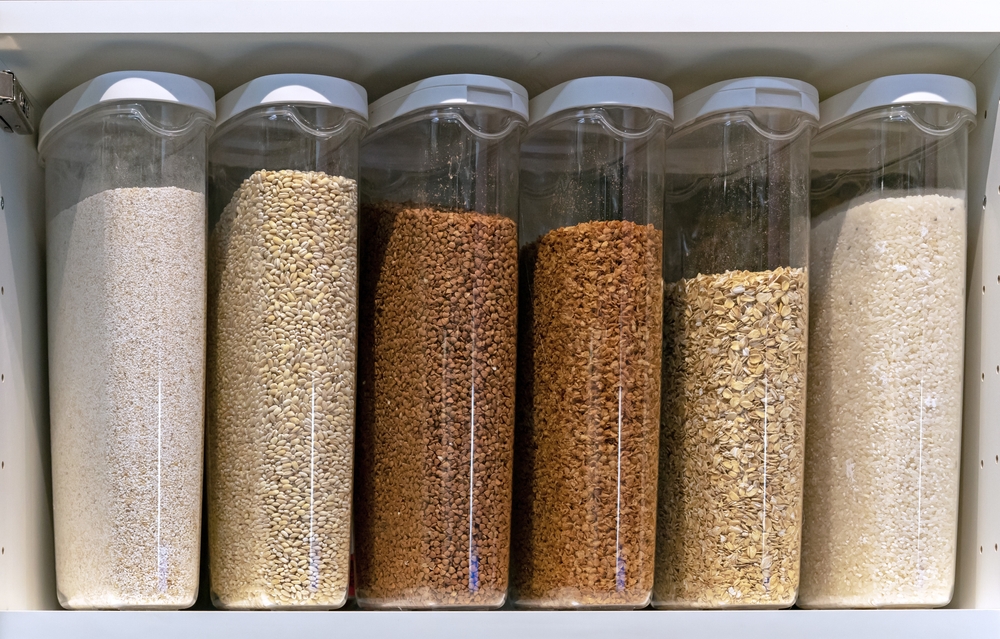
Being thoughtful about what you keep in your kitchen cabinets can make a big difference in the safety and functionality of your cooking space. Medications, flammable items, cleaning products, fresh produce, bulk dry goods in original packaging, and electronics are all better stored elsewhere. By relocating these items to more appropriate places, you can protect your health, reduce fire risks, and extend the life of both your food and your household items. Smart kitchen organization goes beyond convenience. It involves making choices that support cleanliness, efficiency, and safety for you and your family. With a little planning and regular maintenance, your cabinets can become a reliable storage area for everything you need, and nothing you do not.
Read More: Cheap Doesn’t Mean Safe—Skip These 10 Kitchen Items at the Thrift Store
Disclaimer: This article was created with AI assistance and edited by a human for accuracy and clarity.
